
The Free Press

On Thursday, Tesla shareholders will vote on whether to approve a $56 billion payday for CEO Elon Musk. If it goes through, it will be the largest compensation package ever granted to an executive at a U.S.-listed company.
The imminent shareholder vote got us talking in the Free Press newsroom. Beyond the complicated legal battle over his pay packet, does Musk deserve the sum? Is his payday an extreme example of corporate greed? Or is it the payout on a crazy—but fair—bet?
To settle the matter, Nellie Bowles and Joe Nocera step into the Fight Club ring. The question: Should Tesla pay Elon Musk $56 billion?
Here’s Nellie, arguing that yes, Elon has earned every last cent:
When Elon Musk announced that he didn’t need a salary from Tesla but wanted instead to make a bet—that if the company grew to a market capitalization of $650 billion he would get a huge payout—just about everyone laughed. That figure was more than ten times the value of Tesla at the time.
The New York Times’ top business writer, Andrew Ross Sorkin, said then that it was the “most radical” compensation plan in corporate history. Describing the insanity, Sorkin gave the completely reasonable take: “He gets no salary, cash bonus, equity. He only gets equity that vests over time but only if he reaches these hurdle rates which are, dare I say, crazy.” The Washington Post’s business writers characterized the deal as “the Elon Musk of corporate pay deals, a cocksure, all-or-nothing moonshot into history.”
The business and tech reporters did not say, “oh, this is a bad deal for Tesla.” They did not say, “he’s too close to the company and the board is in his pocket.” They said the deal was technically kosher, but that Elon Musk must be an idiot.
To be clear on the legality here: the board unanimously approved the compensation plan. And Tesla shareholders (excluding Musk and his brother) approved the grant with a resounding 73 percent voting in favor.
Well, Elon Musk hit those “crazy” goals. He made a wild bet on himself and on Tesla, and he won. The company grew to the size that once made all the Smart People scoff. And he made Tesla shareholders a lot of money along the way.
Now, those Tesla shareholders (for obvious reasons) don’t want that cash leaving the company. America’s intelligentsia, who hate Musk for being a skunk at their garden party, don’t want him to get any richer. His politics are unpredictable and strange, which upsets them—and me too sometimes, if I’m honest (who are all those freaky Twitter accounts he interacts with?). The courts in Delaware, where Tesla is incorporated, sided with the scrum. And suddenly the smart set has decided that Musk must have broken the rules making that deal in the first place. The board was in his pocket all along, they say. A-ha, he didn’t win at all: he cheated!
You might say that no one deserves to make that much money. And you’re right. No one deserves it. One earns it.
We’re living in an era of such financial illiteracy that people genuinely think there is a limited pool of money, and when someone is rich it must mean it’s been stolen from someone else. Joe Biden talks about “greedflation” as though the high costs of groceries are grocery store owners being mean, and when costs are low then car salesmen are being nice. It’s economics for a nation as imagined by kindergarteners. Jealousy and petty grievances replace reason and ambition. Elon Musk won a crazy bet, an insane bet, and the bitter little bureaucrats can now only scream that he must have cheated.
You know what I have to say to the anti–Elon compensation movement? When I have a gorgeous villa on Mars and when we’re having that new SpaceXCow filet mignon, y’all aren’t invited. Especially not Joe Nocera.
And here’s Joe, making the case that the shareholders are right to vote no:
Since December, Tesla has recalled over 4 million vehicles. It has announced that it is laying off 10 percent of its employees, including two top executives. Its first quarter earnings report was a disaster, with profits down 55 percent. A new model that Tesla was depending on for future growth has been delayed for at least a year. The stock is down 30 percent so far this year.
And yet the Tesla board of directors, which, by law, is supposed to look out for shareholder interests, is urging those shareholders to approve the egregious $56 billion options grant that the board handed Elon Musk back in 2018—the same grant a Delaware judge struck down in January. The idea that Musk somehow “deserves” the biggest CEO compensation award in the history of the world is ludicrous.
The Delaware judge who nixed the award didn’t base her decision on the company’s sorry results. That’s not her job. She based it on the absolute mockery the Tesla directors made of the process of awarding Musk the options. You see, proper corporate governance calls for an arm’s length negotiation between the board and a CEO.
Nothing of the kind took place between Musk and the Tesla board. Musk wanted the options purely so that he could own 25 percent of the company rather than the 12 percent he currently owns. And if he didn’t get what he wanted, he threatened to focus his energies on his other companies, like SpaceX. In other words, he’s blackmailing his shareholders. As for the board, which includes his brother and several close friends, they basically genuflected and said, “Anything you want, boss.”
The judge turned down the pay package not only because it was so offensively huge but because the directors didn’t do their legal fiduciary duty. They were “supine servants of an overweening master,” she wrote.
The Tesla directors are now urging shareholders to approve the options grant because it’s “only fair” to Musk. What a crock. Many major shareholders are looking at the state of its declining business and asking themselves if they’d be better off if Musk took his ball and went home. “This pay package is ridiculous,” said a top pension fund official on CNBC recently.
There is a better than even chance that shareholders will vote no on Musk’s options grant. And if he walks away? Let him go. There are plenty of CEOs who can do a better job than Musk—and for a whole lot less than $56 billion. You can have Mars, Nellie.
Read Joe Nocera on Anthony Fauci’s recent Congressional testimony and follow him on X @opinion_joe. Get Nellie Bowles’ takes every week with TGIF and follow her @NellieBowles.

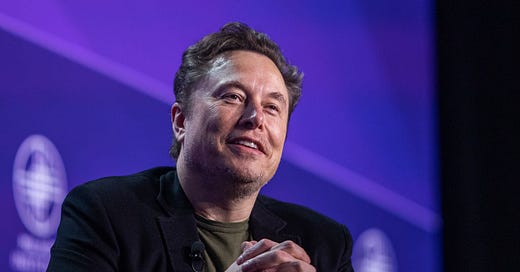



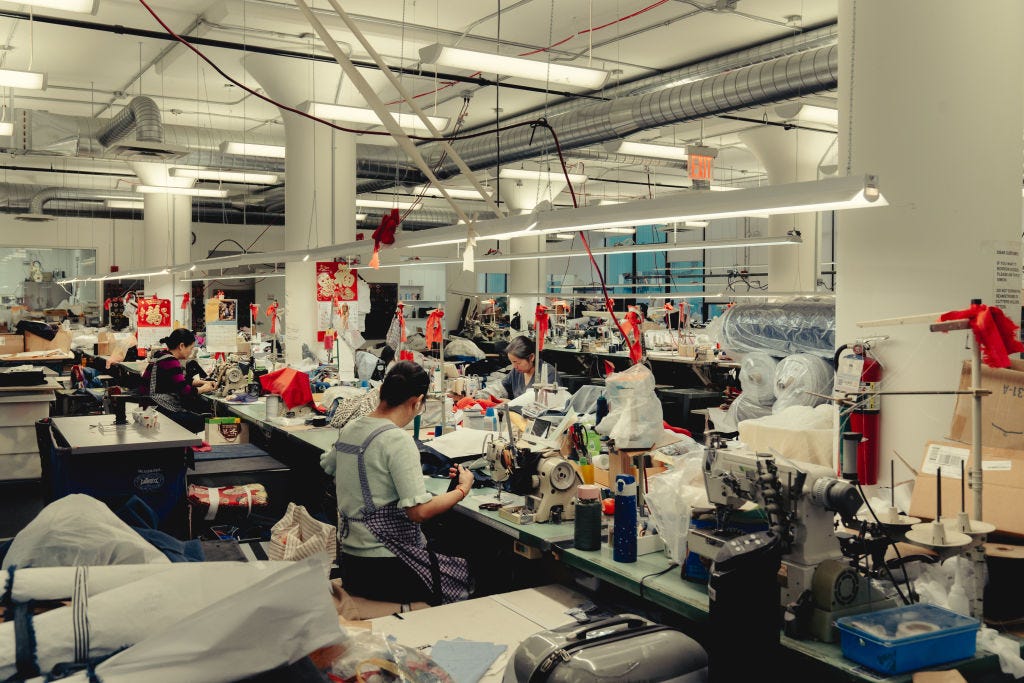

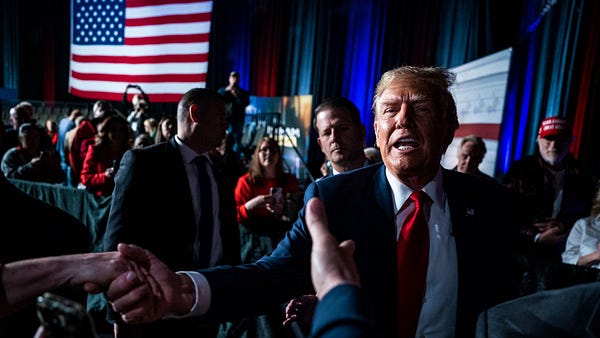



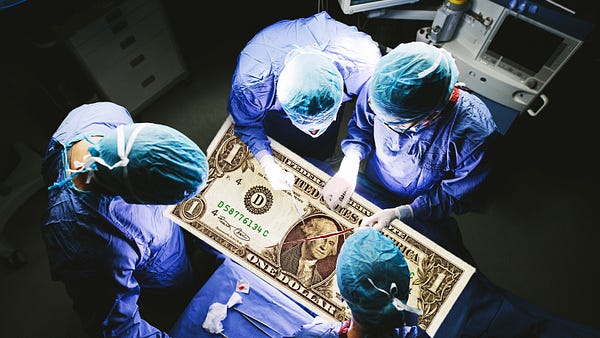

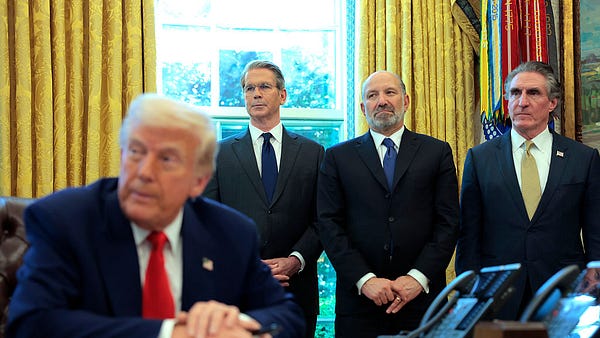

He fulfilled the contract that they agreed too . Business 101 .
Whoa!!! I never thought I would ever agree with 100% of something penned by Nellie Bowles----but she knocked it out of the park here.
In business, in life, you make agreements. Then you fulfill what you agreed to do. Deviations from that, apart from agreed upon renegotiations, are a corrosive force in our society.
It's no surprise that these corrosive deviations seem to always emanate from Marxist/socialist sources.
I personally have no problem with Musk harvesting from his work in such a big way. History shows that he just keeps making big, beneficial things for our Earth society with this capital. It's not like it's his piggy bank, from which he buys all kinds of selfish things. He always reinvests it in things that are designed to benefit large swaths of humanity. So I really don't see it as greed at all. I cannot compare him to anyone else.